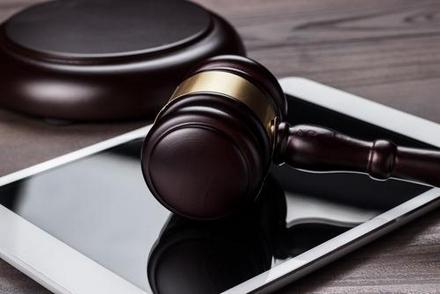TELEPHONES ANSWERED 24 HOURS A DAY
Is the Fourth Amendment Still Applicable in the IT Age?
 Katz v. United States established a precedent in terms of the concept of “search,” providing that an individual in America (at least circa 1967) had the right to an expectation of privacy that society is prepared to recognize as reasonable, therefore upholding the defendant's Fourth Amendment rights.
Katz v. United States established a precedent in terms of the concept of “search,” providing that an individual in America (at least circa 1967) had the right to an expectation of privacy that society is prepared to recognize as reasonable, therefore upholding the defendant's Fourth Amendment rights.
The problem is that society is no longer sure itself.
The standard set by Katz, that “What a person knowingly exposes to the public even in his own home or office, is not a subject of Fourth Amendment protection,” seems to create a very clear standard, at least with today’s hindsight, that nothing sent by email, or discussed on the phone now meets that very basic standard. An email on a cell phone can most certainly be checked by customs officials these days in any U.S. or international airport.
The Privacy Act of 1974 and beyond that, HIPAA and the ADA, establish additional guidelines when this issue crosses over into medical records.
IT May Be Causing Privacy Problems
That said, IT, and the improper use thereof, has created problems and outright breaches by those who wish to defy compliance, often times those who have specific motivations, including law enforcement.
Travel is another place that people have almost no rights to privacy anymore. Per Knotts (1983), “A person travelling in an automobile on public thoroughfares has no reasonable expectation of privacy in his movements from one place to another.” This now includes information that can be gathered from the many IT-related components and gadgets in modern automobiles. Furthermore, a user’s cell phone, no matter where they are, is essentially considered “searchable” by law enforcement without a warrant, particularly when done so in a public place (such as a customs line or in an automobile).
Privacy to Physical Property Also in Jeopardy
Americans also no longer have strict privacy on their physical private property, and that assault began before the mass adoption of the internet. In Ciraolo & Dow Chemical (1986) as well as Riley (1989), it was determined that anything that can be seen from the air by a member of the public, should they happen to be over a property at the time, fails to meet a privacy test that otherwise would apply on private property. IT and its tools have also expanded that impact dramatically, if not further eroded the private sphere as a legal principle, even if the disparities in opinion to date have failed to create any kind of reasonable federal standard.
While there is no fundamental Constitutional “right” to privacy, there are many who argue that in fact it is a presumptive right upon which the triptych of the storied American values of life, liberty, and property are based.
These precedents begin to apply to you if you have been, for example, charged with possessing contraband in a car that is stopped, sending or being in receipt of an email that is stored on a public server (such as when sending medical information via a Google or Hotmail account), or other situations where Americans can expect few of their activities to be either considered or respected as private information.
The impact these developments have can be drastic and can apply in curious ways. If you believe that you have a case where your privacy has been violated with negative impact on your life, particularly during the course of a criminal investigation, you will need the assistance of an experienced experienced Illinois criminal defense attorney. The Law Offices of Hal M. Garfinkel LLC, Chicago Criminal Defense Attorney are here to assist you.




